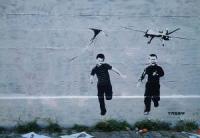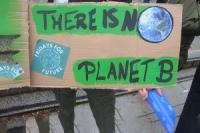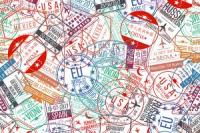Blog / Focus
Focus
The IWM archive houses a rich collection of texts, audio and video files that are worth being rediscovered.
The following thematic foci presented below relate to research projects that have been undertaken at the IWM. They include articles, events, videos and audios. These curated collections were started in March 2020 at the beginning of the first lockdown in Austria.
Thirty Years of Ukrainian Independence
In a December 1991 referendum, voters in Ukraine resoundingly endorsed the creation of an independent Ukrainian state. Three decades later, making sense of Ukraine remains vital to Europe's past, present, and future.
Since its founding at the IWM in 2015, the Ukraine in European Dialogue program has enabled sustained contact and exchange between scholars, public intellectuals, journalists, activists and policymakers from Ukraine and the rest of Europe.
On the occasion of Ukraine's 30th anniversary, the program suggests a small selection of the many insightful commentaries and stories the IWM has published over the years.

Violence Without Restraints? New Wars, Old Lies and International Law
Are we living in a post-war and post-truth world? Armed conflicts are under way across the globe, but we seem to have lost our ability to frame and label them clearly. The language and doctrinal grammar of law are undergoing fundamental transformations in relation to excessive violence in the 21st century. So-called “new wars” symbolize these normative challenges: they transcend state borders and make intensive use of new forms of propaganda, while their protagonists try to circumvent international law. But not all hope has been lost.

COVID-19 and Political Populism
Every crisis is a moment of intensified decision making. It evokes fears, but it also brings fresh chances and generates new hopes. What will be the political aftereffects of COVID-19? Will it, as many feared from the very beginning of the crisis, create new instabilities and play into the hands of populists? Or does it also offer the chance for a consolidation of the political landscape and a strengthening of liberal democracies?

Social Justice and the Legitimacy of Wealth
As every crisis that we have witnessed in our life-time, the current one caused by the coronavirus pushes to the fore questions that are, ultimately, moral in nature: should wealthy Northern European countries guarantee loans for their poorer neighbours in the South in the form of Corona-bonds?; should our societies re-think how we reward low-paid professions that have turned out to be “essential” in the conditions of lockdown (shop-assistants, pharmacists, delivery staff, etc.)?; should we introduce a basic universal income?; is a well-funded universal health-care system the way to prepare for similar crises in the future?, etc. All these and many other policy-related questions depend on the way that our societies think of solidarity, justice, and the legitimacy of wealth.

Europe in Crisis
'Europe is in crisis.’ Almost every report on the EU today finds that it is in a crisis. After the financial crisis of 2008, the so-called migration crisis in 2015 and the crisis resulting from the Brexit referendum in 2016, Europe is facing a new challenge in the wake of the Corona pandemic. The impression thus gains ground that a series of serious crises in Europe are accumulating without being met with an adequate response from Brussels. This has fuelled the popular sentiment that the EU is increasingly irrelevant as it is incapable of meeting the challenges it faces. [Read More]

The Uncanniness of Climate Change
Noam Chomsky recently diagnosed major changes in our consciousness due to global warming that challenge the way we think about what it means to live a “good life”. We have the option either to accept the pressure to consume and accumulate as many commodities as possible or to strive for a world of solidarity and mutual support. In a globalized world, however, it has become difficult to demarcate what is emancipatory from what is potentially reactionary in terms of our engagement in daily life. Citizens are constantly confronted with an amorphous discourse on environmental issues that re-creates and transforms boundaries of inclusion and exclusion. Notions of “back-to-the-land” ideology, yearning for the “locally” grown and self-confident anti-consumerism roam in and out of politically pertinent fields between “green” and “brown”. [Read more]
The Limits of Faith – Religion in the Modern World
Religion “is woven into the fabric of our life,” IWM founding rector Krzysztof Michalski told an interviewer in 2012. Since the IWM’s inception, making sense of religion has been a major focus of the Institute’s work. With a lineage that runs from intellectual progenitor Jan Patočka, through founding IWM president Józef Tischner and Michalski, to IWM Permanent Fellow Charles Taylor, members of the IWM community have thought deeply about the role of religion in our modern world.

Nationalism and Europe’s Turn to the Right
In the 1990s nationalism and right-wing radicalism in Europe were considered things of the past. An increasingly enlarged, and a somewhat more integrated, European Union was usually regarded as an inclusive political project. Having tamed the beast of nationalism, the EU was seen to guarantee the cosmopolitan and democratic future of European nations. Even the Yugoslav wars did not shake this conviction. After all, they mainly concerned the Balkans, a peculiar region considered to be Europe’s alter ego, as Maria Todorova aptly remarked, and often represented as “non-European Europe”. A black sheep’s misconduct, though trying, would not be allowed to sully the family reputation.

Between Amnesia and Hypermnesia – Victory Day 75 Years Later
On 8/9 May of this year, the 75th anniversary of the end of the Second World War will be celebrated. Due to the corona pandemic, outdoor celebrations will be reduced to a minimum; the memory war about the interpretation of the event will, however, go on.
On this occasion, IWM’s Weekly Focus offers articles that emerged in the context of the long-standing research in contemporary history at the IWM, some of them addressing the challenges of re-writing 20th century history, others dedicated to the reflection on its political uses.

Virus Without Borders – Of Migrants and Closures
The reconfigurations of borders, territories, and narratives of exclusion in times of Coronavirus highlight questions and dilemmas that have long exercised researchers working on/with migrants and refugees: issues of (national) sovereignty; border regimes, its actors, and discourses; boundaries of communities of solidarity; narratives of exclusion and inclusion; or scales of governance and responsibilities of refugee protection. The challenges of closures in times of the pandemic provide an opportunity to revisit some of the discussions on migration and refugees hosted by the IWM, which acquire renewed significance today.

Digitality and Democracy
Great hopes were placed just a few decades ago in the empowering impact of digital technology. It was expected to enable unprecedented citizen participation and strengthen monitory democracy, to use John Keane’s apt term for the continuous public control of power, by improving interconnectivity and equalizing access to information for users. Some even prophesied the dawn of a new era of direct democracy. [Read more]

The Return of Geopolitics
Geopolitics is back on the political agenda. Politicians around the world are once again defining international relations in terms of national interests and spheres of influence. It hardly needed the Corona crisis, and the ensuing economic uncertainty, to remind us how fragile and fractured the contemporary political order is. The new geopolitical landscape is complex and open as it remains unclear which choices countries will make and what resources they will use towards these newly defined ends.

Corona and Resurgence of Communitarian Ideas
Will Western liberal societies be able to fight against the Corona pandemic with the same rigor and severity as China’s authoritarian regime? Some of the political measures and restrictions put in place are a cause for concern. Although liberal democracies will hopefully prove capable of mastering the pandemic at large, this does not mean that everything will, or should, remain unchanged. Perhaps this crisis entails a clear message for our highly individualized societies, namely that the mere pursuit of one’s self-interest is not enough. Communitarian perspectives, presented in this weekly focus with contributions by Charles Taylor, Michael Sandel, Nancy Fraser, Erna Appelt, Philippe Sands, Serhii Plokhii and others, may provide today inspiration to recalibrate the functioning of liberal societies.